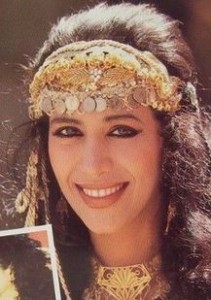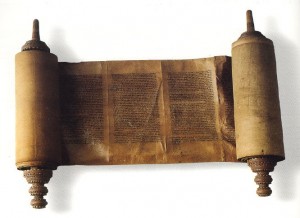Bat-Sheva Ofra Haza (1957-2000) was born in Tel-Aviv to Yemenite Jewish parents, the youngest of nine children. Her talent was first discovered in her youth when she performed with a small theatre troupe. After her military service was complete, Haza officially began her musical career. Her first album quickly went gold, as did her two follow-up albums. In 1983, she was runner-up at the Eurovision Contest, skyrocketing her fame, and giving her next two albums platinum status. She was voted Israel’s “Female Vocalist of the Year” four times in a row. By the late 80s, her fame had spread internationally, particularly for her ‘Yemenite Songs’ album, and its single “Im Nin’alu” (written by 17th-century Rabbi Shalom Shabazi). Her unique mix of Israeli, Arabic, and traditional Jewish music soon topped the Eurochart, and she was even nominated for a Grammy in 1992. Haza collaborated and performed alongside popular artists like Paula Abdul, Michael Jackson, Sarah Brightman, and Iggy Pop, and many others have done covers of her songs, including Madonna and Led Zeppelin. She also voiced Moses’ mother Yocheved in The Prince of Egypt, and sang the hit song from the movie, ‘Deliver Us’, in 17 languages. (It is said that the film artists were so struck by Haza’s beauty that they decided to sketch the character Yocheved to look like her.) Haza also sang on the soundtracks of at least seven other movies. All in all, she brought forth an incredible 24 solo albums. Sadly, Haza died fifteen years ago this week, at just 42 years of age, while in the midst of working on another album. It was later revealed that the likely cause was AIDS-related, which many believed she contracted from her husband. (Her husband said it was from a blood transfusion during a miscarriage, though he himself was found dead shortly after, possibly from a drug overdose). Beloved by Israelis and fans around the world, her music continues to inspire, and she is still often described as the “Madonna of the East”. Tel-Aviv’s Gan Ofra park is named in her honour.
Words of the Week
I don’t know what I would have done without believing in God. His support gives me power and energy to continue to be optimistic, to smile, not to be depressed. Sometimes, if things are not going so well, I don’t cry. I say maybe it’s meant to be…
– Ofra Haza




